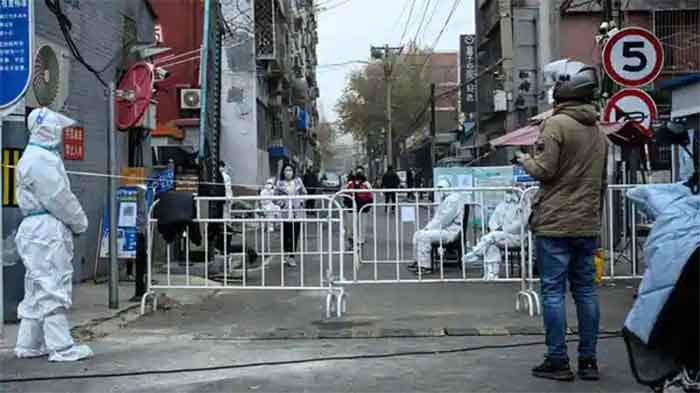
Globally, three million children a year die of hunger or malnourishment according to theworldcounts.com. The site also notes the number is dropping steadily. In a May 2019 editorial ,Voice of America reports, “Today, some 821 million people suffer chronically from hunger. And although this is significantly fewer people than the numbers we saw a decade ago, hunger still kills more people than AIDS, tuberculosis and malaria combined.”
Why then does the coronavirus, which has claimed more lives in the United States than other countries at 91,163 total deaths, offer cause for a global economic shutdown? Belgium hosts the highest rate of mortality in the world from the virus at 16.4 percent. In the United States, Cook County, Illinois records 61,212 cases of the virus as of May 17 according to John Hopkins University of Medicine’s Coronavirus Resource Center. There are 315,174 total global deaths attributed to COVID-19 so far, with the highest confirmed numbers in the United States. Transmission of the virus, says this Chinese study, is elevated by cooler and less humid climates. This possibly explains why areas such as New England and Chicago are heaviest affected, especially New York City.
This essay does not intend to question the lifestyle of American citizens or the policies of the global leadership. However, it may take that tone but I ask that you dig deeper. I propose a question to the reader: why does a mutation of the COVID bug command so much initiative from us whereas global hunger does not seem too much of a concern? How long before the equitable world we all wish to see appears before us?
Already the Coronavirus lockdown has an economic cost reported at BBC here. We are seeing oil prices in the negative in the USA, stock values declining, looming recessions worldwide, and massive unemployment due to the response. Industry is slowing in China where the virus is said to have originated. All in all, we are seeing global political conflicts ranging from who controls the narrative to what cure will work best while political leaders tell citizens “business as usual”, or in contrast turn to authoritarian measures. Richard Hoftstader writes of the paranoid leader in “The Paranoid Style of American Politics”, “He does not see social conflict as something to be mediated and compromised, in the manner of the working politician. Since what is at stake is always a conflict between absolute good and absolute evil, what is necessary is not compromise but the will to fight things out to a finish. Since the enemy is thought of as being totally evil and totally unappeasable, he must be totally eliminated — if not from the world, at least from the theatre of operations to which the paranoid directs his attention. This demand for total triumph leads to the formulation of hopelessly unrealistic goals, and since these goals are not even remotely attainable, failure constantly heightens the paranoid’s sense of frustration. Even partial success leaves him with the same feeling of powerlessness with which he began, and this in turn only strengthens his awareness of the vast and terrifying quality of the enemy he opposes.”
In this work on social psychology, Hoftstader further writes: “It is hard to resist the conclusion that this enemy is on many counts the projection of the self; both the ideal and the unacceptable aspects of the self are attributed to him.” Clearly the authoritarian and paranoid styles merge in conspiratorial logic. The Other must face blame, ostracisation, or anything to distract the populace. The paranoid leader in authoritarian style pins the fearful onto the opposition; it is that fear which he or she embodies in this action that makes the leader effective to others.
Authoritarians thrive on fear, hostility, and incomprehensibility so it is no wonder they are cropping up during these emotionally heated times. Regardless of whether or not coronavirus is indeed “a little flu” , Brazil’s president makes himself the central issue. He is the victim of a conspiracy. Even President Trump in the United States practices better diplomacy — he suggests that he has worked with governors in all the states, of both parties, and they are working together. He also notes in an April press conference that the pandemic shows why the United States must be an ‘independent nation’.
In spite of the media’s attempts at Paxicide and character assassination, the Global Happiness Report tells us that in 2020 more than half the world’s citizens are in urban areas and that “Cities are economic powerhouses: more than 80 percent of worldwide GDP is generated within their boundaries. They allow for an efficient division of labour, bringing with them agglomeration and productivity benefits, new ideas and innovations, and hence higher incomes and living standards.”
In the Communist Manifesto, Marx’s praise of the bourgeoisie speaks for itself: “The bourgeoisie has subjected the country to the rule of the towns. It has created enormous cities, has greatly increased the urban population as compared with the rural, and has thus rescued a considerable part of the population from the idiocy of rural life.”
What is this pandemic and what is the panic around it? Returning to Hoftstader’s comments on the paranoid style, it seems the establishment has pruned and developed it. As the United States faces the worst unemployment rate in history since the Great Depression, and a study predicts a possible extra 75,000 deaths due to despair from the conditions imposed by the virus, there is no easy way to measure the economic costs of this pandemic.
Even now, Chinese officials say the virus may be changing as new cases show symptoms much later, and take longer to test negative. No one knows what the future harbors. The uncertainty itself is torturous as the Well Being Trust and The Robert Graham Center study relates its reasons for calculating higher numbers of deaths of despair, “unprecedented economic failure paired with massive unemployment, mandated social isolation for months and possible residual isolation for years, and uncertainty caused by the sudden emergence of a novel, previously unknown microbe.”
The human is a social animal. Imposing bizarre restrictions on our social lives seems unnatural, especially under conditions we cannot assess.
There are also socioeconomic factors that are emerging in this crisis. The chart shows that workers with less than high school education are suffering the highest rates of unemployment at 21.2 percent, and education level seems to even further reflect on one’s employment according to the chart. Perhaps it is time for a radical restructuring of the economy and tax policy, which may be possible suggests an article in MIT Technology Review. It’s not quite what you expect, however. For instance the article tells the reader that “The tax policy that the AI Economist came up with is a little unusual. Unlike most existing policies, which are either progressive (that is, higher earners are taxed more) or regressive (higher earners are taxed less), the AI’s policy cobbled together aspects of both, applying the highest tax rates to rich and poor and the lowest to middle-income workers. Like many solutions that AIs come up with—such as some of AlphaZero’s game-winning moves—the result appears counterintuitive and not something that a human might have devised. But its impact on the economy led to a smaller gap between rich and poor.”
Let’s not confuse this with flat rate or regressive tax rates that countries like Estonia or Russia used to build capitalist markets. We have capitalist markets in the United States, and do not need to build them. But will we have markets as rich and sturdy post-COVID? The uncertainty is mind-boggling, and the propaganda regarding the virus is frightening.
Janet Yellen of the Brookings Institute tells CNBC that GDP in the United States may be down 30 percent in the second quarter due to the virus. She said, “This is a huge, unprecedented, devastating hit, and my hope is that we will get back to business as quickly as possible.” This interview took place in April 2020. The first quarter already saw a drop of 4.8 percent according to the BEA.
According to a March 2020 Bloomberg article, China’s GDP is at -20 percent in Q1. The article quotes Michelle Lam, a greater China economist at Societe Generale SA in Hong Kong, “We expect infrastructure stimulus to be much stepped up to support aggregate demand and tax and fee cuts to cushion the COVID-19 shock, especially now external demand will be much dampened by the global pandemic.”
President Trump is also calling on infrastructure development, as reported in this CNBC article. When he first entered office, he wanted a two trillion dollar infrastructure package while interest rates were at zero but the Fed upped the rates.
Perhaps, the pandemic paxicide is also bringing some agreement.
The fact is we will not know what COVID-19’s inception into the world will bring until the future arrives. Have we seen any white horses yet? Or is the garbage mounting in sea? As government spending escalates, I think it is safe to assume we are running a course only our imaginations can dream. Meanwhile, migrant workers in India continue to suffer while people use their plight to further their reputations. In the USA, as mentioned we see a downward spiral in the future of blue-collar workers.
It is time we consider something new. While the entire system collapses, we must rebuild because if the future isn’t certain, one thing is: we must make the future. Possibilities are already emerging for us, such as this initiative in Portland.
“’Hope’ is the thing with feathers,” wrote Emily Dickinson who also wrote “Will there really be a ‘Morning’?” Perhaps there will be. A more equitable world stands before us if we wish to make it.
Dustin Pickering is the founder of Transcendent Zero Press and editor-in-chief of Harbinger Asylum. He has authored several poetry collections, a short story collection, and a novella. He is a Pushcart nominee and was a finalist in Adelaide Literary Journal’s short story contest in 2018. He is a former contributor to Huffington Post.
Originally published in Borderless Journal
SIGN UP FOR COUNTERCURRENTS DAILY NEWS LETTER















































